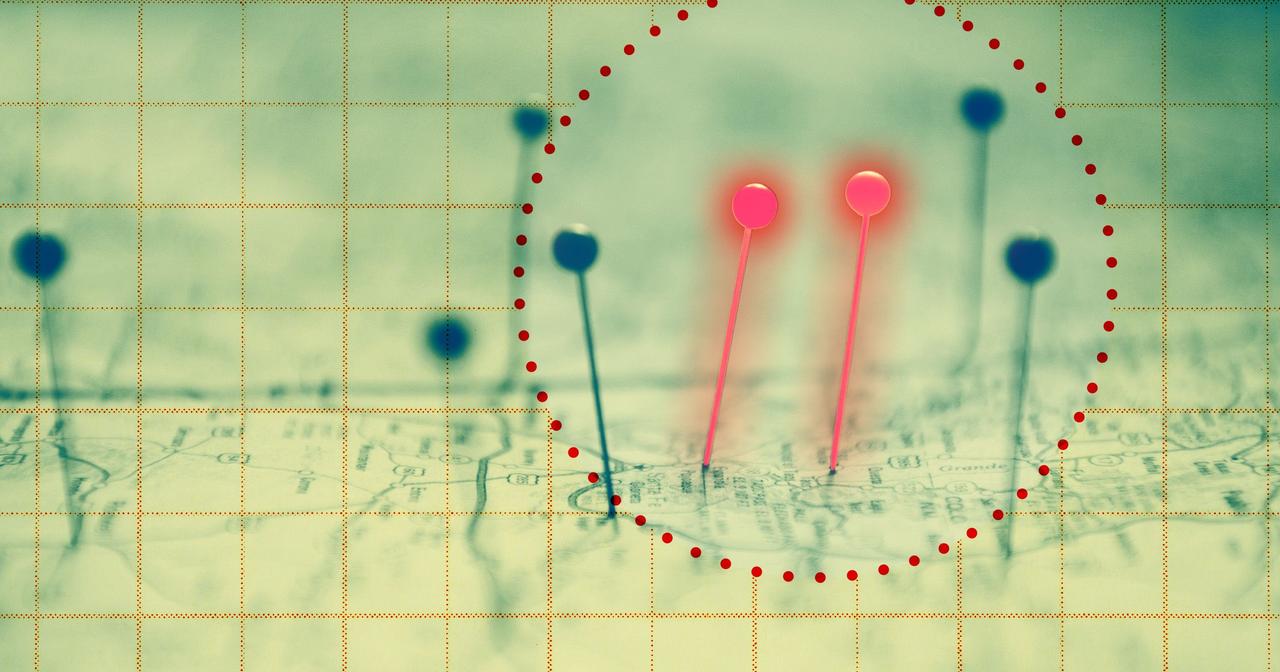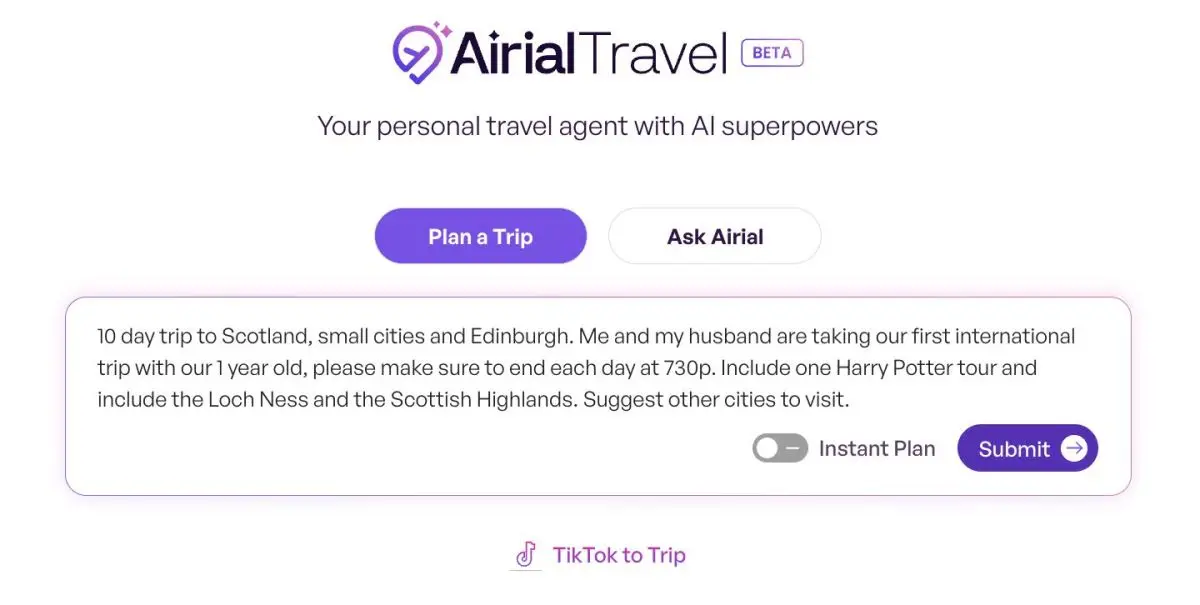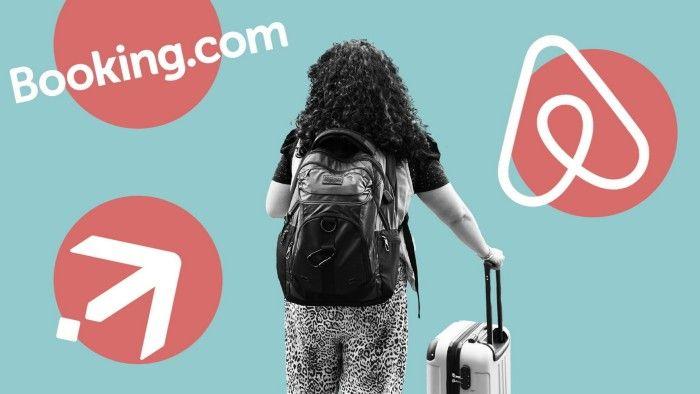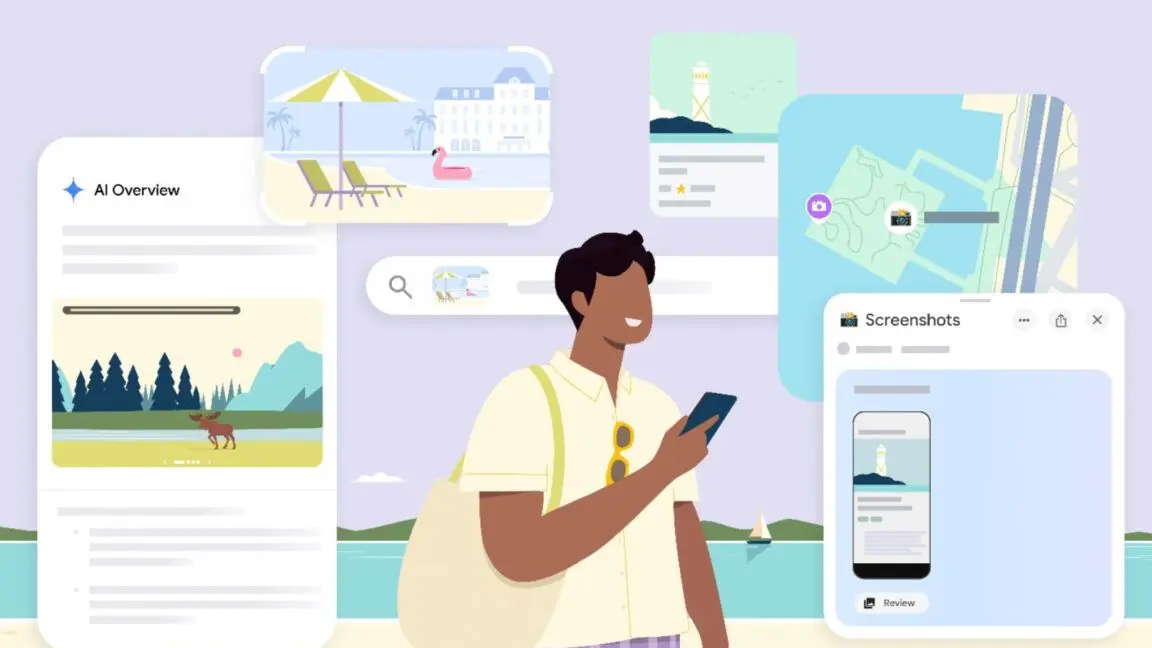The Perils of AI-Powered Travel Planning: When Digital Assistants Lead Tourists Astray
3 Sources
3 Sources
[1]
The perils of letting AI plan your next trip
An imagined town in Peru, an Eiffel tower in Beijing: travellers are increasingly using tools like ChatGPT for itinerary ideas - and being sent to destinations that don't exist. Miguel Angel Gongora Meza, founder and director of Evolution Treks Peru, was in a rural Peruvian town preparing for a trek through the Andes when he overheard a curious conversation. Two unaccompanied tourists were chatting amicably about their plans to hike alone in the mountains to the "Sacred Canyon of Humantay". "They [showed] me the screenshot, confidently written and full of vivid adjectives, [but] it was not true. There is no Sacred Canyon of Humantay!" said Gongora Meza. "The name is a combination of two places that have no relation to the description. The tourist paid nearly $160 (£118) in order to get to a rural road in the environs of Mollepata without a guide or [a destination]." What's more, Gongora Meza insisted that this seemingly innocent mistake could have cost these travellers their lives. "This sort of misinformation is perilous in Peru," he explained. "The elevation, the climatic changes and accessibility [of the] paths have to be planned. When you [use] a programme [like ChatGPT], which combines pictures and names to create a fantasy, then you can find yourself at an altitude of 4,000m without oxygen and [phone] signal." In just a few years, artificial intelligence (AI) tools like ChatGPT, Microsoft Copilot and Google Gemini have gone from a mere novelty to an integral part of trip planning for millions of people. According to one survey, 30% of international travellers are now using generative AI tools and dedicated travel AI sites such as Wonderplan and Layla to help organise their trips.
[2]
AI Endangering Tourists by Sending Them to Nonexistent Landmarks in Hazardous Locations
If you plan a trip using AI, triple check that the locations it recommends visiting actually exist. The BBC reports that unsuspecting tourists all over the world are leaning on AI to plan vacations -- and getting themselves into potentially dangerous situations because AI model are hallucinating fictitious locations. In one instance, two tourists were traipsing through Peru to get to a nonexistent "Sacred Canyon of Humantay" in the Andes Mountains when they were stopped by a local tour guide who overheard them and quickly became alarmed. "This sort of misinformation is perilous in Peru," the tour guide, Miguel Angel Gongora Meza, told the BBC. "The elevation, the climatic changes and accessibility [of the] paths have to be planned. When you [use] a program [like OpenAI's ChatGPT], which combines pictures and names to create a fantasy, then you can find yourself at an altitude of 4,000m without oxygen and [phone] signal." The travel sector has been irrevocably changed by AI, with 24 percent of tourists using them for trip planning, according to a 2025 global survey flagged by the BBC from Global Rescue, a travel service business. This has led to unintended consequences, such as the unsuspecting Peruvian hikers, or a couple who got stuck at the peak of a Japanese mountain because ChatGPT gave them the wrong time when a certain path would be open, according to the BBC. All of this is reminiscent of when map apps became available to the wider public, and small towns and villages across the world then had to contend with sudden vehicular traffic from motorists using the apps to make shortcuts. But the proliferation of AI models for travel planning adds even more complexity to an already busy information landscape. And that's without getting into how AI is being used for scams, Global Rescue warns. Con artists are using bots and deepfakes to trick tourists into using their credit cards on fake travel apps or websites. "The proliferation of AI is an impending threat to travel," said Harding Bush, associate director of security for Global Rescue and former Navy SEAL, in the group's survey.
[3]
Can you trust AI to give you good travel advice?
Orit Ofri thought she could trust artificial intelligence to give her travel advice for a recent trip to Paris. And why not? She was using the latest version of ChatGPT. And as a marketing consultant from Portland, she knew her way around the technology. But the technology apparently didn't know its way around the City of Lights. For example, it recommended visiting the Musée d'Orsay on Monday, when it's closed. "I also asked for restaurants that are within a 10-minute walking distance from the Eiffel Tower, and it gave me restaurants that were more than 20 minutes away," she remembers. "I realized it was giving me bad advice." Welcome to the brave new world of AI travel planning. It's promising. It's convenient -- but it's not quite ready for prime time. Artificial intelligence has quickly become the traveler's favorite planning tool, promising hyper-efficient, personalized itineraries at the touch of a button. Surveys show a majority of travelers now trust its recommendations. But this convenience comes with a hidden cost: AI's confident algorithms often hide errors and biases that can derail a dream vacation. And they force users to question whether the technology is a true digital guru or an overhyped electronic shill. The promise of a digital travel guru The AI travel pitch is seductive. Tell ChatGPT your preferences, budget and dates. Then watch it craft a personalized itinerary in minutes that would take hours to research manually. No more scrolling through endless travel blogs or cross-referencing restaurant reviews. "AI can rapidly generate a broad itinerary and compare destinations far faster than a human ever could," says Nic Adams, CEO of the security tech company 0rcus. "The primary advantage is efficiency in rapidly synthesizing information." Terri Brien, an interior designer who used ChatGPT to plan her London trip, experienced this firsthand. She fed the system her preferences for design-focused experiences and foodie spots with historic charm. The result? A nine-day itinerary that was efficient and fun. "Each day flowed naturally," Brien says. "I wasn't zigzagging across the city. When my Cotswolds tour was canceled, ChatGPT suggested the National Gallery, which was perfect." The numbers back up the enthusiasm. Travelers using AI for summer planning saved an average of seven hours. One in five spent less money than expected, and 78% discovered new destinations they wouldn't have found otherwise, according to a recent Qlik survey. When smart algorithms do stupid things But scratch beneath the surface, and the cracks start showing. Jonas Muthoni, an AI expert who analyzed thousands of AI-generated content pieces, tested ChatGPT for a recent Kenya trip. The AI confidently recommended visiting Maasai Mara National Reserve during peak migration season without mentioning that road conditions make certain lodges inaccessible. "The AI pulled from outdated tourism websites rather than current local knowledge," he says. It gets worse. SEO Travel, a U.K. digital marketing agency, recently put AI itineraries to the test and found that 90% contained at least one error. Nearly one in four recommended permanently closed restaurants or attractions. Over half suggested visiting places outside their operating hours. "The biggest issue is AI's inability to factor in real-time conditions or nuanced preferences," says Clayton Johnson, a digital marketing expert from Minneapolis, who arrived 45 minutes late to a client meeting after trusting Google's AI routing through construction zones. The bad information problem Here's where things get really concerning. AI doesn't just make mistakes -- it makes them with supreme confidence. "AI can create bias and incorrect results if outdated data is used," warns Katie Robertson, technology director at 360 Private Travel. "Getting an incorrect recommendation isn't just inconvenient -- it can completely ruin someone's travel experience." Chris Dyer, an AI expert who used multiple models to plan a recent family vacation in Japan, discovered this pattern. "A ferry time was wrong," he recalls. "A museum that required timed entry was sold out. A temple was under renovation. Transit times were optimistic. A recommended restaurant had switched to reservations only." AI predicts text from patterns and averages. It doesn't know about holiday changes, maintenance closures, festivals or strikes. It's weak at sequencing stops with real travel times and crowd patterns. But that's not the only problem. AI's hidden agenda There's another issue lurking beneath AI's helpful exterior: commercial bias. Milton Brown, who manages digital marketing budgets, tested ChatGPT for a recent trip. It recommended hotels 40% more expensive than equally rated alternatives just three blocks away. "Those recommended hotels had aggressive digital marketing campaigns targeting the exact keywords the AI was trained on," he says Most AI tools don't disclose their data sources or weighting mechanisms. Biases toward monetized listings remain invisible to users. "AI frequently suggests mainstream aggregators rather than uncovering hidden deals," Adams notes. "Transparency varies, and most tools do not disclose weighting mechanisms." The savvy traveler's AI guide So how do you harness AI's power without falling into its traps? The pros have figured out a system. Start with AI, finish with humans. Use AI to brainstorm ideas and compile options, then cross-reference everything with recent reviews and local sources. "Think of AI as a starting point," advises Chip Lupo of WalletHub. "Not a final travel agent." Be specific with your prompts. Generic requests get generic and often inaccurate responses. Instead of "Plan five days in Buenos Aires," try "My partner and I love music, wine and literature. Plan us five days in Buenos Aires with Borges locations and off-the-beaten-path wine bars." Verify the vital details. Check opening hours, reservation requirements and current conditions directly with venues. "The moment AI starts giving you specific prices or claiming something is 'the best,' that's when you need human verification," says Muthoni, the AI expert. Use AI for what it does best. Let it handle initial research, compare broad options and organize information. Don't let it make final booking decisions. That should be your choice. One more thing: AI is evolving quickly, so even if your first experience falls flat, you might want to try again later. "The progression of AI is truly incredible," notes Jack Ezon, who runs the travel adviser firm Embark Beyond. "While it certainly lacks accuracy and acumen, it is light-years better than it was six months ago, and will certainly be even better in a few years from today." The verdict: Use AI with caution (but don't be paranoid) AI excels at the heavy lifting of travel research but sometimes stumbles on execution details that can make or break a trip. Perhaps we need a new term for this phenomenon: "algorithmic itinerary fatigue" -- that sameness that creeps in when AI serves everyone the same "best" restaurants and "must-see" attractions based on popular search patterns rather than personal preferences. The AI recommends the same attractions, hotels and restaurants, for everyone. Greg Miller, an AI consultant, is cautiously optimistic. "AI is a great idea generator and filter," he says. "It's not a replacement for a guide or current guidebook. ... Give it a brief. Use its list. Then confirm the details with humans and official data." When it comes to AI, skepticism is warranted, but fear is not. The technology represents a tool that could improve your next trip, but it will never replace a guidebook or a human travel agent. "I think that using AI for recommendations about travel is one of the best uses of AI," says Derek Leben, who teaches ethics at Carnegie Mellon University. "It can also reduce a lot of time spent sorting through travel blogs and review platforms." AI may be the loudest new voice in travel, but it still doesn't know you as well as you know yourself. Use it wisely, verify the details religiously and remember: The best trips often happen when you venture beyond the algorithm's recommendations.
Share
Share
Copy Link
AI tools are increasingly being used for travel planning, but their limitations and potential dangers are becoming apparent. From recommending non-existent landmarks to providing outdated information, AI's role in travel is under scrutiny.
The Rise of AI in Travel Planning
Artificial Intelligence (AI) tools like ChatGPT, Microsoft Copilot, and Google Gemini have rapidly evolved from novelties to essential components of trip planning for millions of travelers. A recent survey indicates that 30% of international travelers now utilize generative AI tools and dedicated travel AI sites such as Wonderplan and Layla to organize their trips
1
. The appeal is clear: these tools promise hyper-efficient, personalized itineraries at the touch of a button, potentially saving travelers an average of seven hours in planning time3
.
Source: BBC
The Dangers of AI Hallucinations
However, the convenience of AI-powered travel planning comes with significant risks. One of the most alarming issues is the phenomenon of AI hallucinations, where these tools confidently recommend non-existent locations or landmarks. In Peru, two tourists were discovered attempting to hike to the fictional "Sacred Canyon of Humantay" in the Andes Mountains, a location created by combining unrelated place names
1
2
. This misinformation could have led to life-threatening situations due to the challenging terrain and high altitudes.
Source: Futurism
Inaccuracies and Outdated Information
Beyond hallucinations, AI travel planners frequently provide inaccurate or outdated information. A study by SEO Travel found that 90% of AI-generated itineraries contained at least one error, with nearly a quarter recommending permanently closed establishments
3
. Travelers have reported being given incorrect opening hours, suggesting visits to closed museums, and receiving unrealistic transit times. These errors can lead to missed reservations, wasted time, and disrupted travel plans.Related Stories
Commercial Bias and Hidden Agendas
Another concerning aspect of AI travel planning is the potential for commercial bias. Some AI tools have been found to recommend significantly more expensive hotels without disclosing any affiliation or reasoning behind these choices
3
. This raises questions about the objectivity of AI recommendations and whether they truly serve the traveler's best interests or are influenced by aggressive digital marketing campaigns.The Need for Human Verification
Despite their efficiency, AI travel planners struggle with real-time conditions, nuanced preferences, and up-to-date local knowledge. Experts emphasize the importance of using AI as a starting point rather than a definitive guide. Travelers are advised to verify AI-generated information with official sources, local expertise, and recent reviews to ensure a safe and enjoyable trip
1
3
.As AI continues to evolve in the travel sector, it's clear that while these tools offer significant benefits, they also present new challenges. The key for travelers is to harness the efficiency of AI while maintaining a critical eye and supplementing machine-generated advice with human insight and verification.
References
Summarized by
Navi
[3]
Related Stories
Recent Highlights
1
Google Gemini 3.1 Pro doubles reasoning score, beats rivals in key AI benchmarks
Technology

2
Meta strikes up to $100 billion AI chips deal with AMD, could acquire 10% stake in chipmaker
Technology

3
Pentagon threatens Anthropic with supply chain risk label over AI safeguards for military use
Policy and Regulation








